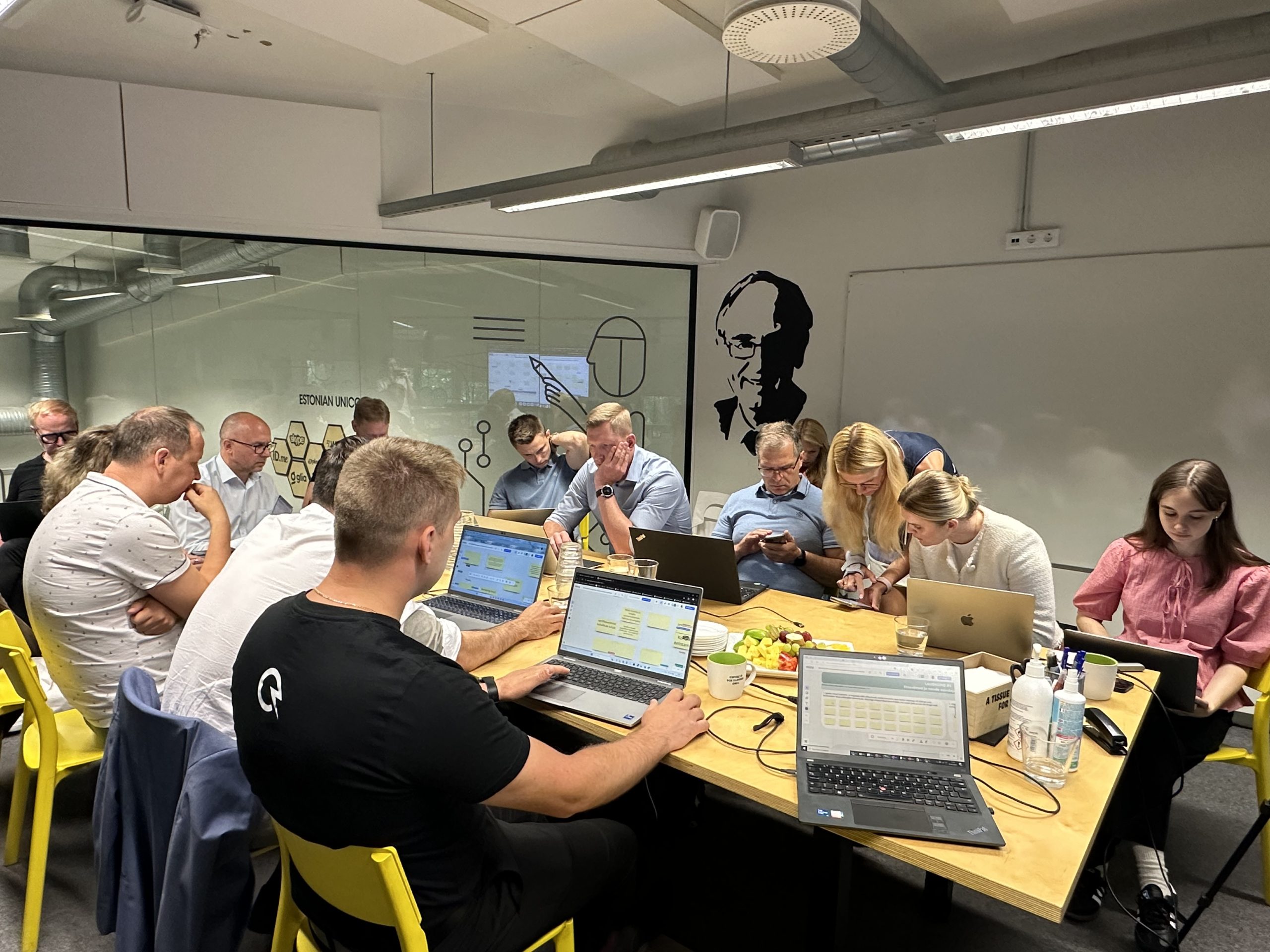The Estonian Cleantech Association organized its first official gathering of energy clean technology companies to identify and address their export needs. This event was carried out in collaboration with Enterprise Estonia. Solutions to overcome the primary barriers to exporting were also brainstormed.
Participating companies identified four main barriers to export: the complexity and cost of the certification process, the lack of local piloting opportunities, the absence of a necessary network of contacts and unclear regulations in target markets.
“Energy cleantech developers operating in one of the world’s smaller energy markets will inevitably have to start exporting. The local market is limited, and the volume needed for development is not available here. Reality checks such as the one we carried out today are necessary to get feedback on what kind of measures from the state would be helpful for increasing exports,” commented Villem Vohu, Focus Area Manager of Smart Energy Solutions at Enterprise Estonia.
“The association sees itself as an important partner for the state. With this meeting, an important step has been taken to increase cooperation between the state and companies and to set common goals,” added Kädi Ristkok, CEO of the Estonian Cleantech Association.
One proposed idea was the creation of a physical demo center. This center would allow local stakeholders, as well as foreign investors and delegations, to learn about the Estonian cleantech sector and meet local companies. For companies, it would be an opportunity to establish new contacts, including potential customers.
The need for closer cooperation between companies was also raised, emphasizing the importance of sharing knowledge and experience. The establishment of an export community was proposed. This community would allow companies that have already been through the export journey to offer advice, speeding up and simplifying the process of finding the necessary information to export for beginners.
Energy cleantechs Bisly, Eleport, Esgrid, Efenco, Fusebox, InnoAir, Roofit.solar, Solarstone, Solintel, Sunly, Tuge Energia, UP Catalyst, Energiasalv/Zero Terrain and 2C Ventures were represented at the meeting.
“Our priority is to create green, competitive business models. We have introduced Zero Terrain water storage technology to the international market, which is free of location constraints, improves security of supply, and provides consumers with affordable, reliable, and clean electricity. Therefore, it is of utmost importance for us to have a say in how the state can support the export growth of cleantech companies,” said Peep Siitam, founder and CEO of Energiasalv.
“Sunly contributes to the cleantech sector by investing 5% of its assets in new startups. We see that more cooperation between the state and companies would encourage new players who want to develop their ideas in the field of cleantech,” said Priit Lepasepp, Co-founder and CEO of Sunly.
A follow-up meeting is planned for the autumn, which will also involve policymakers.
For additional info please contact:
Hedwig Meidra
+372 5059104
